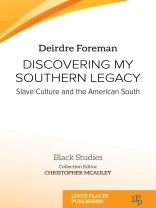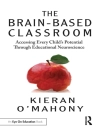What was the cultural legacy of enslaved Africans in the American South, and how has that legacy been handed through generations?
For author Deirdre Foreman, this question is a very personal one: in this book, she explores the cultural legacy of enslaved Africans in the American South through an ethno-autobiographical reflection on her own African-American identity and family heritage. Through storytelling and personal narratives, the author describes her family’s cultural...
Inhaltsverzeichnis
Acknowledgements
Notes on language and content
Introduction
Chapter 1 Ghana
Chapter 2 The “Big House”
Chapter 3 Tobacco field
Chapter 4 Farmi...
Über den Autor
Chris Mc Auley is a Professor of Black Studies at UC Santa Barbara where he teaches courses on the Caribbean, Black Political Thought, and US Foreign Policy. His main...












